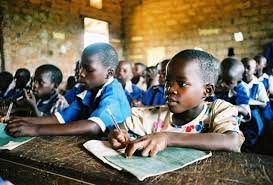Notice: Undefined index: banner_ad_width in /home/ayekooto/public_html/wp-content/plugins/quick-adsense-reloaded/includes/render-ad-functions.php on line 359
Notice: Undefined index: image_width in /home/ayekooto/public_html/wp-content/plugins/quick-adsense-reloaded/includes/render-ad-functions.php on line 359
Notice: Undefined index: banner_ad_height in /home/ayekooto/public_html/wp-content/plugins/quick-adsense-reloaded/includes/render-ad-functions.php on line 360
Notice: Undefined index: image_height in /home/ayekooto/public_html/wp-content/plugins/quick-adsense-reloaded/includes/render-ad-functions.php on line 360
No doubt, knowledge is a prime value in human existence; it is the hallmark of living, the bedrock of nation-building, and a certain source of growth and development. Knowledge is almost equal to education, but not equal. The main distinction is that education is a formal process, whereas knowledge is a result of informal experience. Knowledge is gained through real-life experiences, whereas education can be obtained through formal institutions such as schools, colleges, and universities. Also, education is the process of acquiring all of one’s knowledge through numerous methods such as reading, experiencing, studying, travelling, and listening. Unlike in academia, you are given a structure to follow to learn theoretical and occasionally practical knowledge.
Looking through the pressure and treasure of education as opposed to academics, you will realise why most academicians are more like managers of theorems than formulators of theorems in an underdeveloped and developing nation as opposed to a developed nation. In most less developed countries, it is more of an academic exercise than an experience. Students are nurtured through peer pressure more often, and this has made the treasure of education in academics more of an illusion. In underdeveloped and developing countries, the reward for academic work usually consists of a piece of paper called a certificate and no satisfaction. This has increased the rate of unemployment and economic hardship because most people who have gone through the four walls of schools are not trained to be solution producers or providers but rather perpetual consumers of what is obtained from the developed world.
People from nations with academic pressures end up becoming great managers more often. They are trained to believe and sustain theorems and principles. They rarely think without the box. They think either within or outside the box of ideas. This is why it is so difficult to obtain educational treasure most of the time. In search for knowledge, the pressure of academics must be tailored towards harvesting the treasure of sustainable knowledge through quality education, or else underdeveloped and developing nations might never achieve great development.
Until knowledge is thought through an unbiased, undiscriminating, and valued process, true education might not be derived from academics. It is always sad to see academic graduates not proactive enough to provide solutions like their contemporaries from developed nations. The lacuna in academics must be sincerely filled if growth and d\evelopment are ever in view. Academic pressures must be geared towards searching for solutions, and the real treasure of genuine discovery must be well planned and acted upon for collective growth. Knowledge remains the most premium value in human existence and must be searched for with sustainable solution mindsets.
Olajide B.O.Y.
Ayekooto Fact Finders



Comment here